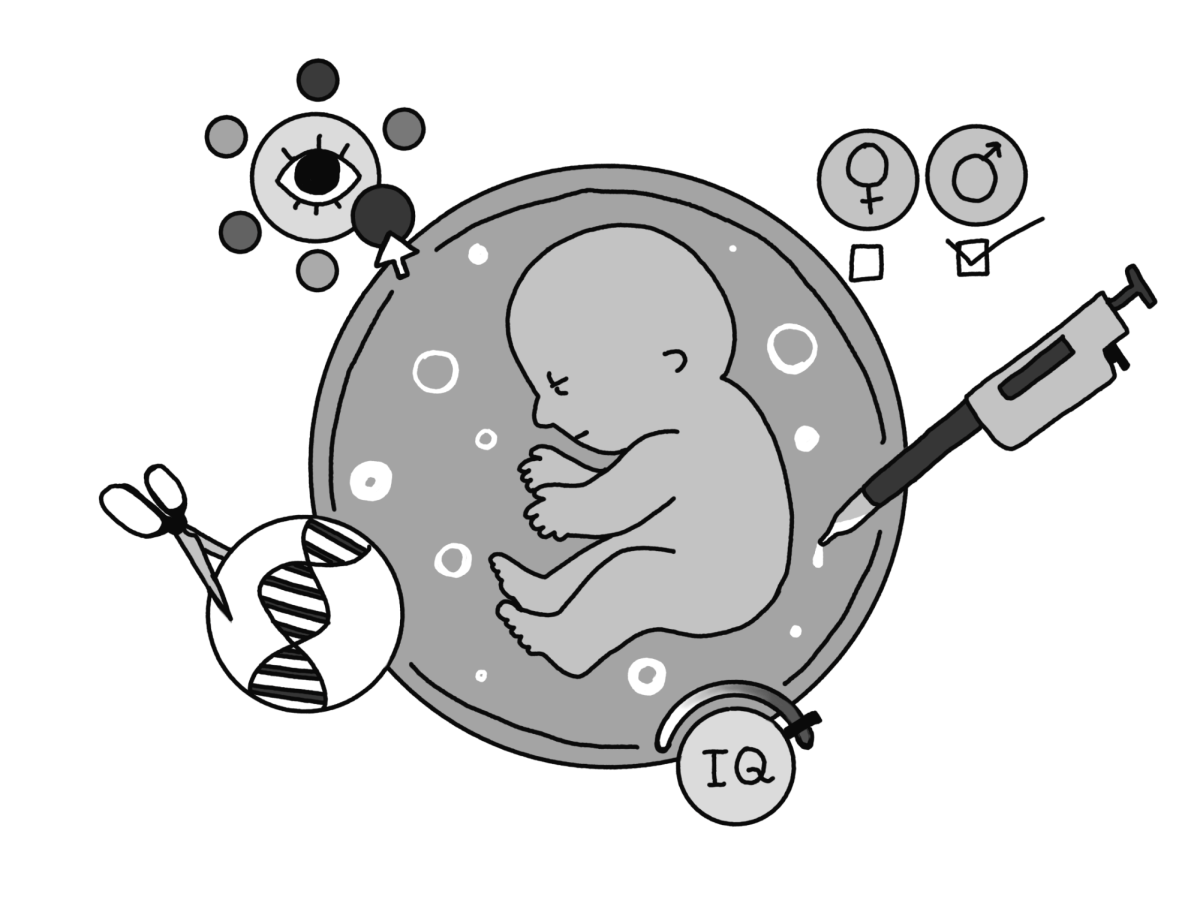The desire to improve and to better oneself is ingrained in the human mind. Whether achieving a physical feat or standing above the rest in mental prowess, many have tried to improve themselves in the name of personal or societal progress. Some have even focused beyond the improvement of the individual and have instead focused on changing the species as a whole.
The allure of improving the human race is not a new one. Since the time of the ancient Greeks, there have been attempts to change humans through selective breeding. This theory of controlled reproduction was supported by the famous Greek philosopher Plato, who believed that such a system would improve the human race as a whole.
More modern variations of improving the human race have been practiced through various societies, with the latest iteration being CRISPR babies. Instead of selectively breeding humans like in previous attempts, the newest approach involves the utilization of the latest in genetic engineering.
Although the new technology brings about new possibilities in the betterment of the human race, the risks and potential for misuse outweighs any theoretical benefits. New technologies in the biological engineering field, such as CRISPR, must be strongly regulated and not practiced on humans.
CRISPR, or clustered regularly interspaced short palindromic repeats, is a recent innovation in the field of biotechnology that allows for the modification of DNA. Since 2012, the technology has been used to change the genes of various living organisms, including fruits, mosquitos and even small mammals like mice.
Genetic engineering has been mostly used for disease treatment and prevention in various plants and animals. It has also become the latest technology used to modify and improve food for human consumption, allowing different foods to become more sustainable and less susceptible to diseases.
Many genetic engineering uses can be applied to humans to some extent, such as preventing the transmission of certain genetic diseases and resolving predispositions to serious conditions. The technology could also be used in the selection of desirable traits, whether it be higher mental aptitude, fitness or specific appearances.
Applying the same technology to humans has been deeply contested by both geneticists and experts on human rights, resulting in many bans across the world. Countries such as Canada, Belarus and Sweden have outright banned human genetic modification, while other countries such as China have heavily restricted its use.
Concerns for the misappropriation and misuse of the emerging technology have inspired such restrictions. Its potential for trait modification are reminiscent of previous attempts to modify humans, a practice known as eugenics.
The practice of eugenics, which is typically associated with many dark parts of history, raises profound ethical questions about the limits of scientific intervention in human evolution.
While there are many instances of eugenics throughout history, Nazi Germany is one of the most infamous. With Nazi Germany, eugenics was a central component of Adolf Hitler’s racial policies, aimed at creating a “pure” Aryan race – a concept of one heterogeneous race originating from 19th century race science – while eliminating individuals deemed racially or genetically inferior, or of a “non-Aryan” origin.
This ideology led to the implementation of forced sterilization programs targeting individuals with disabilities, mental illnesses and other perceived “undesirable” traits. Nazi atrocities are one of the most extreme and horrific applications of eugenics in history.
With Nazi Germany being one of the most well-known instances of eugenics in history, there are many other notable times, such as in ancient Greece.
The concept of eugenics in ancient Greece was primarily associated with the idea of fostering superior traits through selective breeding among the elite. Philosophers such as Plato and Aristotle discussed the importance of selective breeding to improve the quality of citizens in their ideal societies. Their ideas, however, were more focused on the reproduction of the ruling class rather than the systematic elimination or oppression of perceived inferior individuals.
This idea of selecting certain genetic traits while tossing others aside pulls a future into vision, where individuals are judged not by their inherent worth but by their genetic makeup.
With the new scientific advancements of CRISPR, the possibilities of altering human DNA to enhance desirable traits has become more tangible than ever. With new research being completed within reproductive science, the idea of “designer babies” has stirred quite the controversy. Whether it is fascination or apprehension, the morals of eugenics come into question. The same ideology that caused many dark moments throughout history could be replicated using the new advanced technology.
The allure of being able to design their own offspring draws in many parents, as most want to be able to provide their child with every advantage possible. There is a debate to be made when it comes to who decides which traits are desirable or beneficial. The availability of genetic editing is another issue to discuss.
Ensuring that such a complicated and expensive technology is available equally to those who need it is proving difficult. Already existing genetic therapies cost upwards of half a million dollars per treatment, according to the National Institute of Health.
Factors such as distances between facilities and lower income areas make the technology almost unreachable to those not in the upper classes of society. Many of the already pervasive disparities in health will become more exaggerated with the implementation of more expansive genome modification, further widening the gap in healthcare.
As the potential for technologies such as CRISPR to be used on humans becomes ever more tangible, the threats of such a Pandora’s box being opened becomes ever more apparent. Its misuse threatens a more pervasive and systematic form of eugenics, while any potential health improvements it could bring are negated by the exclusivity of such an expensive treatment.
Legislation needs to be prepared for the evolution of CRISPR and the changes it will bring to not healthcare but society as a whole.


